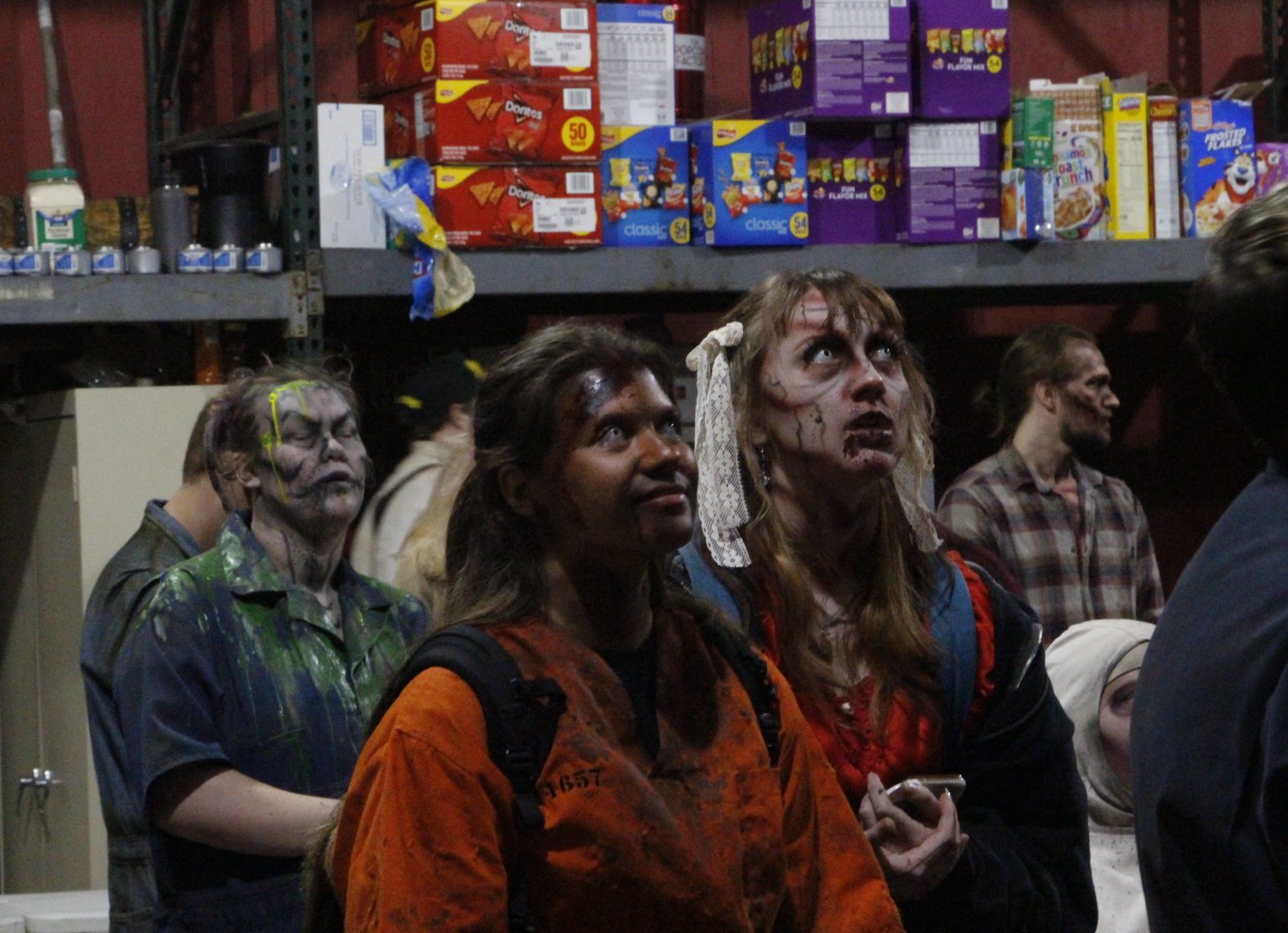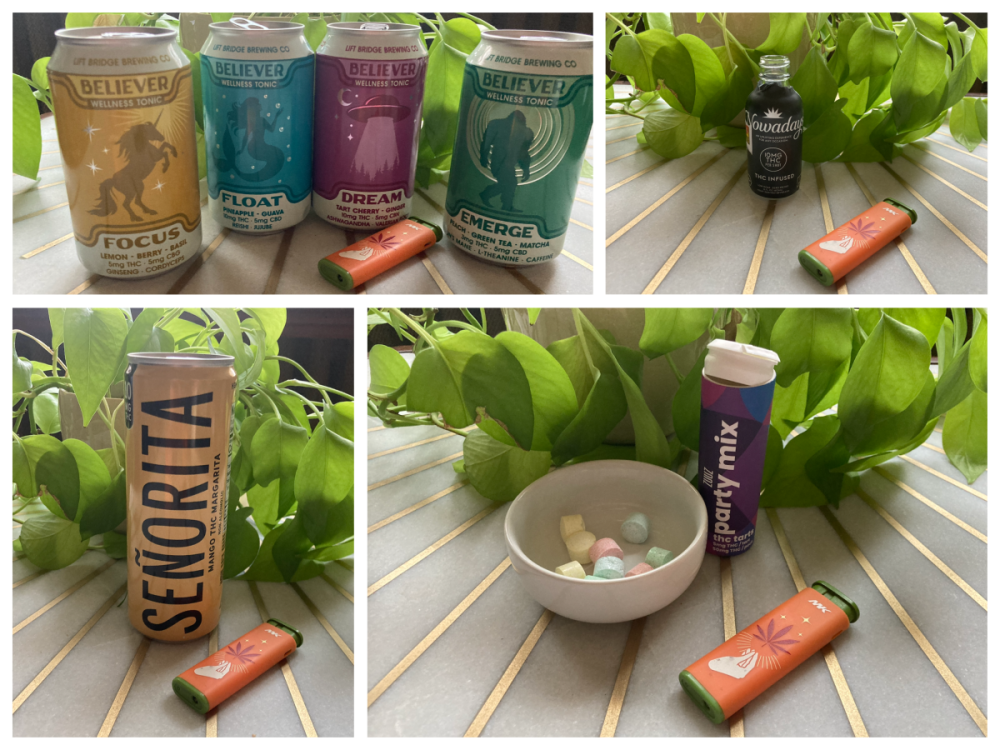It’s a sold-out Friday night at Dead End Hayride in Wyoming, Minnesota. Close to 4,500 people are waiting in line for one of the eight John Deere tractor wagons that will take them to a corn maze and themed rooms where animatronics and actors will stalk, jump scare, screech, and howl.
Meanwhile, 200+ Dead End spooks and specters are getting into character. A tin shop behind the walkthrough portion of the attraction serves as a homebase where actors check out their costume from the wardrobe racks, stand in line for hair and makeup, and wait for the show to begin. It's a job many of them hold near and dear to their (bloody?) hearts.
“Working here is just better than at [other haunts], because I come here and everyone feels like family,” says actor Myra McKendry. “I also believe everything here is a lot more scary. Some haunts are very controlled and nit-picky, but here, you’re given freedom to make your own character and scare people how you feel comfortable scaring.”
Behind the scenes the actors, dressed in scary costumes dripping with fake blood, do non-scary things. Some smoke around a fire pit. Some sit on the floor eating McDonald’s fries. Some hunch over a table, hitting their vapes while watching TikToks.
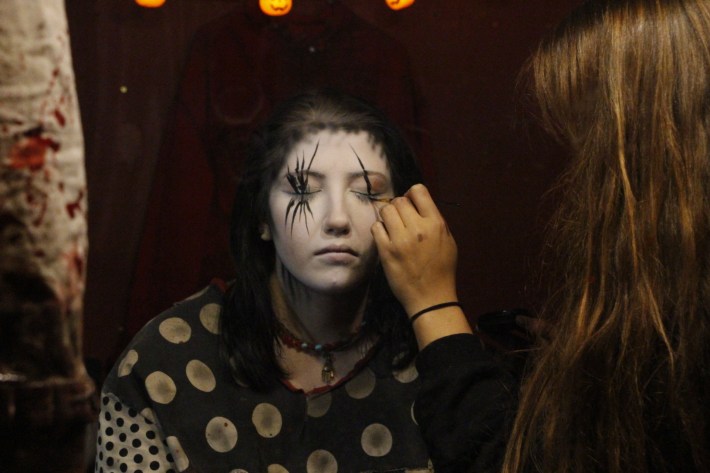
Work shifts run from Friday through Sunday, plus most Monday and Tuesday nights, from late September to Halloween. At a rate of about $15 an hour, actors often work 12-hour shifts on a weekend night. And they love it — for the most part.
The downsides? In addition to the cold weather and long hours, sometimes guests can get handsy. “There are a lot of exchanges that can happen between [actors] and guests,” says actor Allison Witzmann, who usually plays a soldier in the military scene. “Sometimes guests are like, ‘Well, if you touch us I’m gonna touch you,’ and there’s some unwanted interactions.”
Myra McKendry, a second year actor who plays a vengeful woman named Mama, says she’s learned to be aware of what is happening with guests at all times during her scene. “Western isn’t for the faint of heart if you’re working there,” she jokes.
A stop on the hayride takes guests to Vulture Creek, an old western ghost town where Mama and her girls are out for revenge—but only on the men.
“Mama is a flirty woman yet she demands respect,” says McKendry.
When the wagon pulls into the western scene, a few of her helpers hop on, picking out male guests and offering them as a sacrifice.
“We’ve got a strong one for you, Mama!” one shouts.
“Mama, this one has a shiny, bald head,” exclaims another.
“Oh, this one’s just a cuddly teddy bear, Mama,” says yet another.
While the girls get to pick on a guy or two, it’s Mama who decides if they’re worthy of sacrifice. “We should hang ‘em all!” she exclaims this time, as twin flames shoot up the sides of the platform and a loud gunshot goes off. As the scene goes dark, the tractor pulls out of Vulture Creek.
“My favorite wagons are the ones that roll up and I say, ‘Howdy y’all,’ and they shut up…I make a joke, and then they laugh,” McKendry says. “The quiet wagons are so creepy.”
Although McKendry says the “good wagons outweigh the bad wagons,” there are instances that have her on guard for the safety of herself and the girls in the scene. While McKendry stands on a platform, elevated and away from the guests, her girls stand on the wagon, in between rows of people they get up and personal with. And that can lead to problems.
“When people stop at [Vulture Creek], they’ll talk at me and can get really rowdy, especially with a scene full of women,” she says. “Men will get very rowdy. They will touch, they will say very inappropriate things to my girls. I have to be very aware of what is happening because I need to look out for these girls…When I [gesture with my hand to an actor] it means get off, that you are in an unsafe situation and need to get off the wagon.”
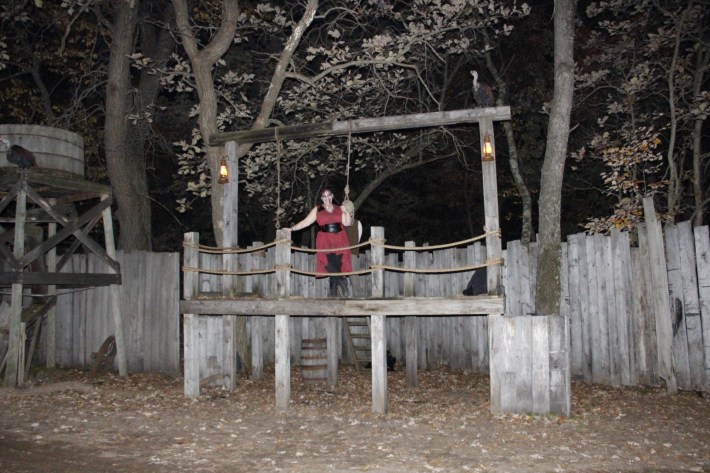
Harassment doesn’t happen too often though, thankfully. And McKendry says she does feel safe while working, especially knowing she’s surrounded by people who support her. Though some nights can be exhausting, and towards the end of the season burnout creeps in, McKendry believes that her coworkers make it all worth it.
“We hang out and can talk about the things that happened and it’s nice, because you can just vent to everybody,” she says. “Everyone probably had a weird night because every night is weird. It feels like a family.”
Anthony Debrota has worked as an actor at Dead End for four years. Tonight, he’s playing a clown in a barn. A billowy jumpsuit, intricate makeup, and mismatched contacts are all a part of his look. He’ll hide behind red poles and pop out at unsuspecting guests as they turn the corner.
One of his favorite parts of the gig is that he gets to make his own character. No name, backstory, lines, or parameters are given — he just has to act. “They put you somewhere and even if you don’t like it, you always have a character for yourself,” he says. “You get to do what you want to do and say the words that you want to say to the guests.”
Debrota likes to mix it up depending on who he’s creeping on. If it’s a group of young children, he takes an “entertainment over scaring” approach, going for laughs rather than fear. But if you’re a middle school boy trying to act tough? Watch out. “I go hardcore on them,” he says.
Dead End’s policy for touching guests is limited to the shoulders, back, head, hair, and neck. That, plus gauging the crowd’s engagement level is key for Debrota, both in respect to scare level and his own safety.
“We know our limits. You can easily get punched in the face, so you need to know when to stop,” he says of having to dodge people’s fight or flight responses. “Sometimes the [guests] are kind of naughty and I’m just like, ‘Nope, I’m not touching you guys.’ Then other nights are like, ‘Hell yeah, let’s go for it.’”
Allison Witzmann worked at Dead End in 2020, took a break to finish college, and now has returned for the 2023 season. She has been pleased to discover that many of the people she worked with three years ago are still here.
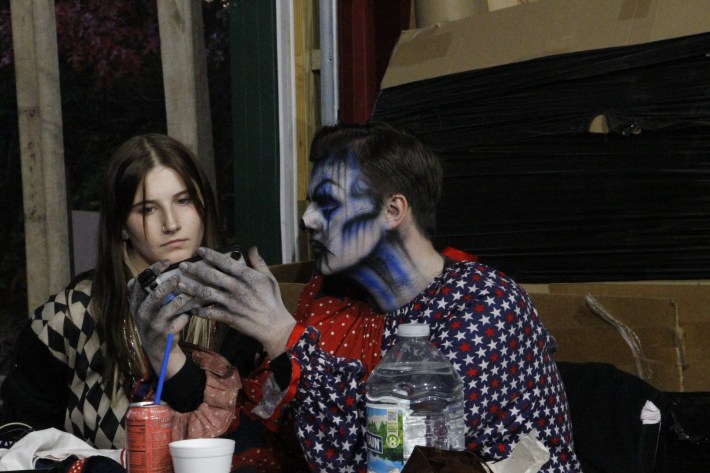
“The people here are the most colorful characters you’ll ever meet,” Witzmann says. “It’s kind of like a family. A really, really weird family.”
Witzmann also loves the freedom of her job, as she gets to scare how she wants to scare within the boundaries of her scene. This year, she often plays a comrade in Dead End’s new military scene. Complete with custom built animatronics and a real helicopter that served two tours in Vietnam, the setting depicts a space invasion on an army crew. Fake aliens tear prop intestines from a dummy’s stomach while another alien’s head pops out of a statue’s torso. Witzmann prefers to wander about looking for her missing friend Carl — who doesn’t really exist.
“I go around saying things like, ‘Where’s Carl?’ And guests are just like, ‘What, who’s Carl?’” she says. “Or sometimes I go, ‘Johnny didn’t make the jump,’ and point at the crashed helicopter.”
She and the other actors in the military scene get full creative freedom every night. Some evenings there’s no Carl. Some nights everyone is possessed by the alien invaders. Some nights Witzmann begs guests for help. Often the section actors will get together beforehand to determine their approach that evening and bounce lines off of each other.
After a long night of spooks and scares, the guests go home and the actors return to the shop to decompress. A hot, fresh cooked meal is served as they all catch up, talk, and laugh — as if they didn’t just spend the last few hours scaring some people so badly they peed. The airbrushed makeup gets scrubbed off, costumes are returned to the wardrobe department, actors clock out, and goodbye hugs are given as friends part ways. Regardless of how cold the weather gets, how rude a guest can be, or how long the hours are, the job is still fun for the crew, and that’s what makes it worth it.
“Oh, I wouldn’t trade this for the world,” McKendry says.
